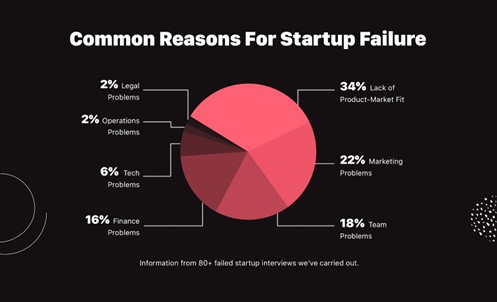
This data was reported on January 9th, 2024, https://www.failory.com/blog/startup-failure-rate
Nine out of ten startups ultimately fail. What is the underlying cause of these failures? Perhaps they run out of cash, lack product-market fit, or have an ineffectual marketing strategy. But these things don’t just happen to businesses, they happen as a result of the decisions that founders, and their team’s make – or fail to make. In other words, many growing companies fail due to poor leadership—and these failures are preventable.
Although many founders discover their leadership weaknesses too late to do anything about it, it doesn’t have to be so. Learning to lead enables a founder to take their business to the next level. The startup founders who remain CEOs the longest are the best at growing and adapting to the needs of their business. Founders will run into many challenges and get many decisions wrong. That’s ok, failure is a part of entrepreneurship. So they should focus on progress not perfection. And learn from mistakes rather than be defeated by them.
So what can founders do to reduce the risk of failure – or at least catastrophic failure? In my soon-to-be-published book Founder’s Legacy there are lots of failure reduction mechanisms. Let me give you a few examples:
You are sure to get many decisions wrong, so the key thing, then, is to be ready to try, fail, and learn. Ali Tamaseb, in his 2021 book Superfounders, examined what makes a successful startup founder by analysing about 200 startups that have reached the $1 billion valuation mark. He found that age, education, and number of cofounders were not predictors of a startup’s success. But one significant predictor of success that Tamaseb did find was that roughly 60 percent of unicorn founders had previously launched startups. Why? Most importantly, they were more likely to have learned from their mistakes. So the worst decision is not to try at all – a sure fire way to avoid failure but where would it get you?